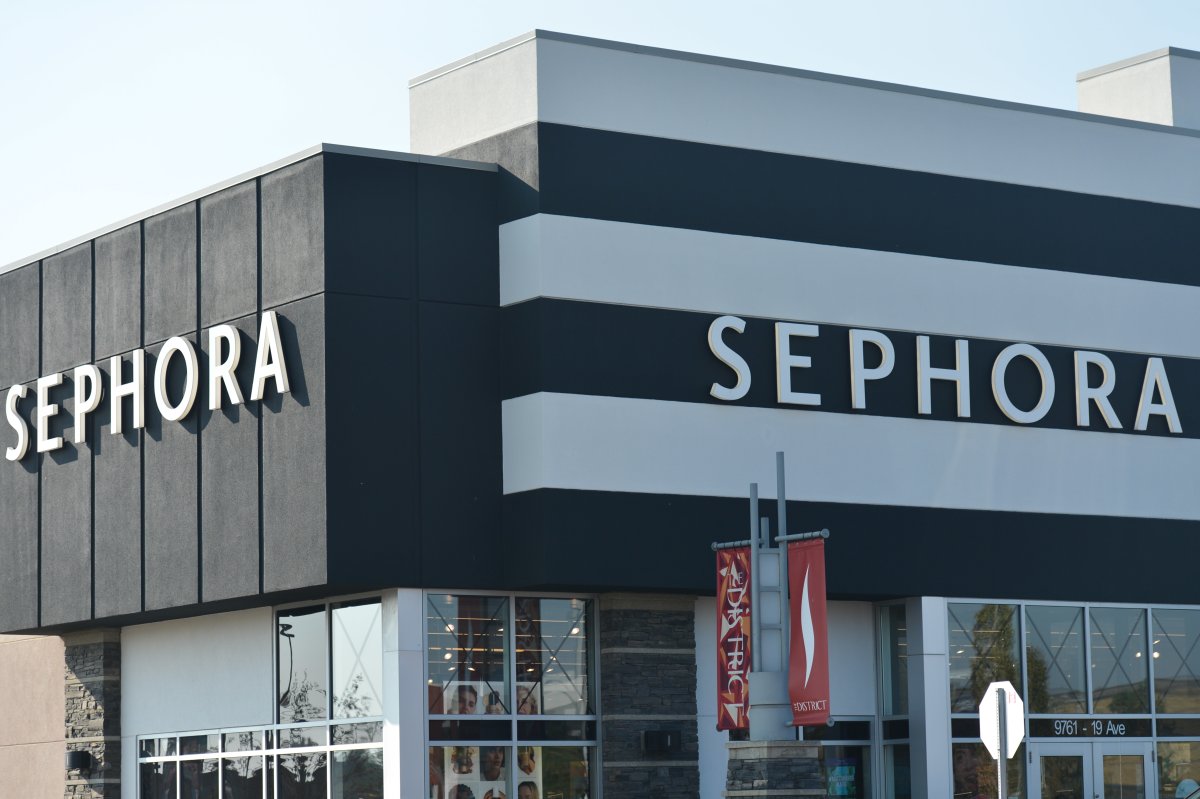Beauty fiends on the prowl for that perfect new lip gloss or nail polish had to search stores other than Sephora between 10 and 11 a.m. last Wednesday.

Sephora’s 400 stores in the U.S., including its distribution centres and corporate offices, were shut down to conduct a one-hour diversity training session for all 16,000 employees.
While the “We Belong to Something Beautiful” initiative had apparently been in the works for quite some time, the timing of the inclusivity training was seemingly all-too convenient.
READ MORE: Sephora plans day of diversity training at all U.S. stores after security called on singer SZA
A cloud of perfume to cover up some stink
Just a little over a month ago, R&B singer (and former Sephora employee herself) SZA, posted a tweet accusing a Sephora employee at a Calabasas, Calif., location of racial profiling.
In a statement, Sephora acknowledged that the SZA tweet “does reinforce why belonging is now more important than ever” but emphasized that its inclusion training was part of an already long-planned marketing campaign.
Band-Aid solutions don’t stick
While each public relations strategy differs, it seems Sephora wants to appear as more proactive than reactive in its approach to diversity and inclusion. But I think in doing so, it may be missing the mark on showing its willingness to take accountability and address racial bias — all the while putting on a pretty face.
If it feels all too familiar, it’s because it is. Last year, Starbucks also shut down its doors for half a day to hold diversity training for its employees in response to social uproar after an employee in a Philadelphia store called the police when two black men who were waiting for a friend asked to use the toilet.
READ MORE: (From June 2018) Starbucks across Canada closing early Monday for anti-bias training
And though many praised Starbucks for its quick response and action over the incident, we still don’t know if the training actually had any impact. Bloomberg estimated the cost of lost sales due to the one-day training event was US$16.7 million (which isn’t actually such a big number when you consider the company’s fiscal 2018 revenue of US$24.7 billion), however we can’t really laud the “grande” gesture, as we haven’t been able to measure the effect.
Social scientists have expressed concern whether the training would be effective, but after the story faded from the limelight, so did Starbucks’ bullhorn. And the training was never really evaluated for its ability to create change — leaving me to question if it was more for crisis management than actual interest in shifting bias and corporate culture.
Survey says…
Overall, the outlook for the success of diversity training on its own looks grim. According to a new study from Wharton, while diversity training may prove somewhat effective in creating slight changes in attitude, it doesn’t really effect changes in behaviour.
- What is a halal mortgage? How interest-free home financing works in Canada
- Capital gains changes are ‘really fair,’ Freeland says, as doctors cry foul
- Ontario doctors offer solutions to help address shortage of family physicians
- Budget 2024 failed to spark ‘political reboot’ for Liberals, polling suggests
Other research shows that such efforts can backfire altogether — with employees feeling resentful for mandatory training and diversity being “forced” upon them — resulting in even less favourable views towards women or racial minorities and/or their hiring and promotion.
In a study for the Harvard Business Review, Alexandra Kalev and Frank Dobbin looked through three decades of data and interviewed managers from hundreds of U.S. companies. They found that diversity training can actually have a negative impact by reinforcing dangerous stereotypes. Simply put, “the research shows that diversity training doesn’t work,” said Alexandra Kalev, a professor of sociology at Tel Aviv University.
REALITY CHECK: Does name-blind hiring help improve diversity?
Diversity and Dollars
Ironically, it is usually the companies that seek out diversity training in knee-jerk reactions that need them the most. The fashion industry has a long history of faux-pas with regards to race and bias.
In 2017, Sephora faced accusations of racism after a video of a black customer accusing a white employee of racial profiling went viral.
Barneys New York was famously forced to pay out half a million dollars in a racial profiling lawsuit in 2013 after a black customer was arrested and detained in a holding cell after buying a $349 Salvatore Ferragamo belt.
Zara, Old Navy, Lord & Taylor, Nordstrom Rack, Macy’s, and Saks Fifth Avenue have all faced allegations of racial profiling in the past, with results ranging from denial to six-figure settlements.
Real change takes real effort
Racial profiling isn’t simply a Sephora problem nor a fashion problem; it’s a systemic and deeply rooted societal problem.
So, can a one-hour shut down really change people’s unconscious biases?
As many critics, researchers and academics have pointed out, one-time training sessions do little to correct unconscious bias in the long term.
READ MORE: Leslie Jones accuses Sephora of mistreating her makeup artist, leaving her in tears
If retailers want to successfully address racism and promote diversity, these messages arguably have to be carried on throughout the organization on a day-to-day basis long after any publicity around a high-profile incident has died down.
Time and energy must be dedicated to developing comprehensive strategies to create a more inclusive culture, which includes changes in hiring practices, management training initiatives, employee resource groups, social programs and more.
It is a long-haul approach that will result in long and lasting change. If Sephora and other companies truly want to “belong to something beautiful” they are going to have to put in a lot more work than a one-hour makeover.
Meera Estrada is a cultural commentator and co-host of kultur’D! on Global News Radio 640 Toronto.



Comments